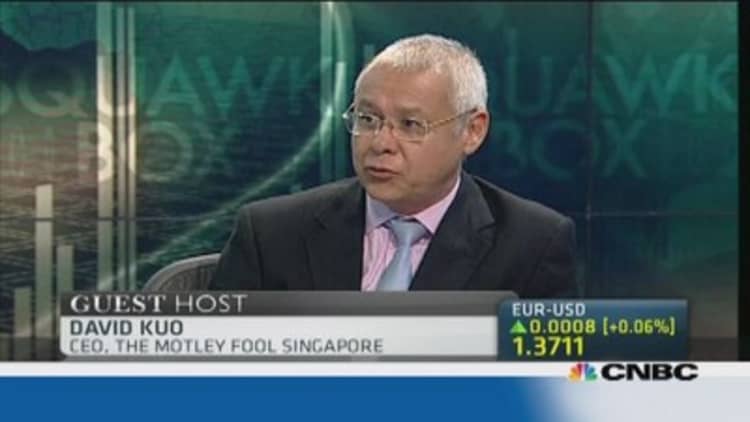What's the theme for 2014?
It's still murky, but I'm increasingly warming to the idea of a synchronized--yet very low-key--global economic recovery.
Consider the international developments:

1) Global manufacturing numbers are getting better;
2) The Baltic Dry Index is at a two-year high; and
3) the World Trade Organization announced they had reached a major trade deal (this may be the first one in their 18-year history), where all 159 members agreed to smooth customs procedures. Along the same lines, there is talk they may be able to complete a trade pact with a dozen nations in the Pacific Rim in the next few months.
Meanwhile, back here in the U.S.:
1) Congress is near a budget deal, eliminating a major uncertainty that hampered growth this quarter, and which will likely soften the effects of the sequester;
2) Wage inflation is still nowhere to be found, but demands by fast food workers for an almost 90 percent increase in wages, along with a call from President Obama to increase the minimum wage, may be the start of something;
3) The yield curve is steepening--a good indicator of economic growth--and an especially big help for bank stocks; and
4) More money is continuing to flow into equities; the "Great Rotation" out of bonds, into stocks, is happening but at a very leisurely pace.
There are still plenty of negatives:
1) the consumer seems motivated to buy mostly by massive 50 percent off sales and little else;
2) bank loan growth is still anemic, and
3) after a strong start earlier in the year, housing has leveled off. The rate of household formations does not seem to be growing at the rate many economists assumed it would be growing, perhaps reflecting a "new normal" where children remain with their parents longer than they have historically.
Speaking of bank stocks, Goldman Sachs begins its Financial Services Conference tomorrow, continuing into Wednesday. Expect commentary and likely guidance from Wells Fargo, Morgan Stanley, Bank of America , PNC, and SunTrust, all of whom will speak tomorrow morning.
1) By-bye, Low Cost Carrier (that's LCC, or US Air). American Airlines and U.S. Airways have officially closed their merger; the combined company will begin trading today on the Nasdaq under the symbol "AAL".
The deal has created the world's biggest airline, slightly larger than competitors United Continental and Delta. Consolidation in the airline business has provided a runway for air carrier stocks this year: DAL has soared 137 percent, Southwest is up 78 percent, and UAL has risen 57 percent.
2) McDonald's slides after reporting dismal U.S. November comparable restaurant sales that fell 0.8 percent, versus expectations of a 0.3 percent gain. Global sales were better-than-expected at 0.5 percent, helped by strong gains of 1.9 percent at European restaurants.
The key point for MCD is that expectations are low; the stock is up only 9 percent this year, well below the markets and most of its competitors.
3) Sysco spikes to record high after agreeing to acquire U.S. Foods in a stock-and-cash deal for $3.5 billion. The combined company is expected to generate $65 billion a year in sales and should expand SYY's geographic presence. The merger is expected to close in Q3 2014.
4) Japan surged more than two percent, closing near its highest level in nearly six years, following a better-than-expected U.S. jobs report and trade data out of China that showed exports leaped double digits in November.
—By CNBC's Bob Pisani


